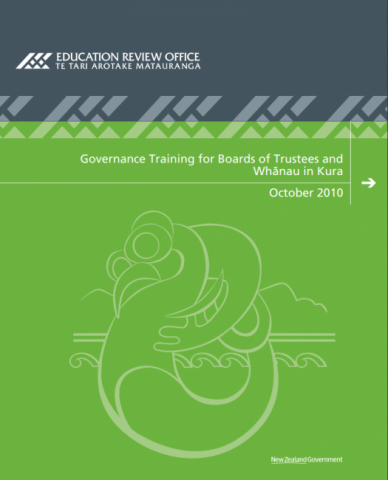Ngā Whakangungu Kāwanatanga mā ngā Poari Whakahaere me ngā Whānau i roto i ngā Kura - Governance Training for Boards of Trustees and Whānau in Kura
Published: 22 Feb 2011
This national report focuses on the relevance and usefulness of governance training provided for boards of trustees and whānau in kura, and the extent to which this training has contributed to improvements in the quality of governance. In order to understand the context for kura governance, the report also provides an overview of effective governance practices identified generally throughout the schooling sector.
- Audience:
- Education
- Parents
- Content type:
- Research
- Topics:
- Governance
- Māori parents and whanau
- Kura
